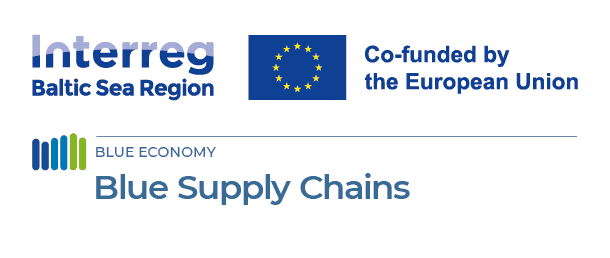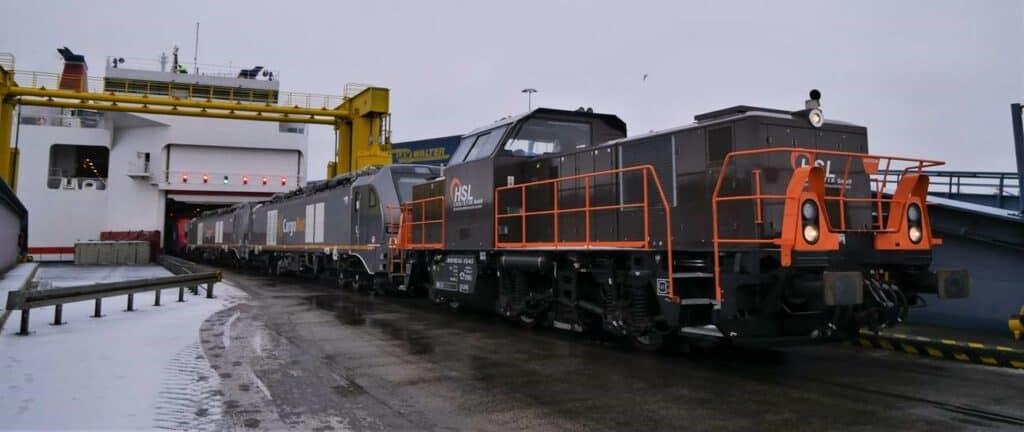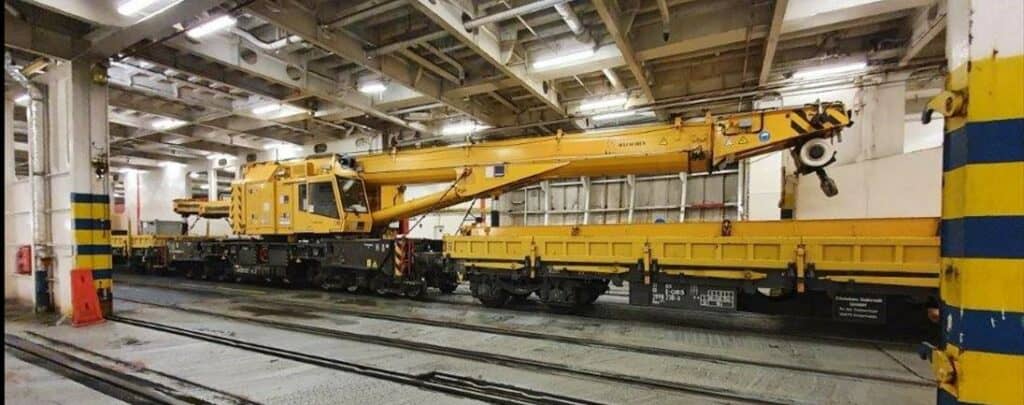
BSC - Project Story: Talking "greener future" with Stena Line
19 February 2024
The European Green Deal set very ambitious goals not just for the Baltic Sea Region (BSR) but all of Europe. Emission reduction is the name of the game and with it come numerous challenges for all the involved parties, including the port sector. Especially smaller and medium-sized ports often find themselves in a difficult spot, without sufficient support.
That’s where the Blue Supply Chains (BSC) project steps in. It’s all about teaming up and sharing knowledge to help ports lead the charge towards eco-friendly transport, showing the way for the whole region.

By ship and rail
“We believe that combining the two most efficient modes of transport – ship and rail – can play a vital role to achieve climate goals on transport (…). In this project, we strive to get more transparency in the CO2 impacts of rail transport between Scandinavia and Germany, e.g. by assessing various routes in rail transports, but also shunting operations in ports or at nodes. We are also evaluating various emission calculators, that account for the specifics of each transport and mode (…)”, commented Maria Tornvall, Stena Line’s Head of Sustainability, when giving a brief overview of the project.
Katrin Verner, Stena Line’s Freight Commercial Germany, offered more insight on their role in the BSC project: “We as Stena Line offer a standalone project: Rail ferries on our Rostock-Trelleborg route, that allow direct rail transports over the Baltic Sea (…). It is the stable, reliable – the only! – alternative to the overcrowded land railway via Denmark and the Öresund (…). Together with our project partners, we are conducting analyses on the capacities on the ferries and in the ports, the customer potentials, costs, but also sustainable topics. These analyses will give us input to further developing the route Rostock-Trelleborg and its ferries (…).”

Gaining momentum
Christopher Schnur, Stena Line’s Rail Coordinator, described the achievement’s so far and the benefits of sharing knowledge with a large pool of like-minded and engaged professionals: “The exchange of experience and input was highly beneficial, and we immediately started developing new ideas. Besides that, we have started the first analyses and already received some results that are supporting our development of the rail ferry route. Furthermore, we have participated and organized customer events to be more visible and find new project partners for our upcoming on-board workshops (…).”
The importance of in-person meetings, serving as a platform for discussions and deep dive analyses between project partners, as well as customers and other stakeholders couldn’t have been stressed more. This is where the main strength of the BSC project lies. Christopher also underscored the incalculable value of building personal relationships with those involved and learning more about their respective home countries.
Please make sure to check out the full interview on the Interreg Baltic Sea Region website!





